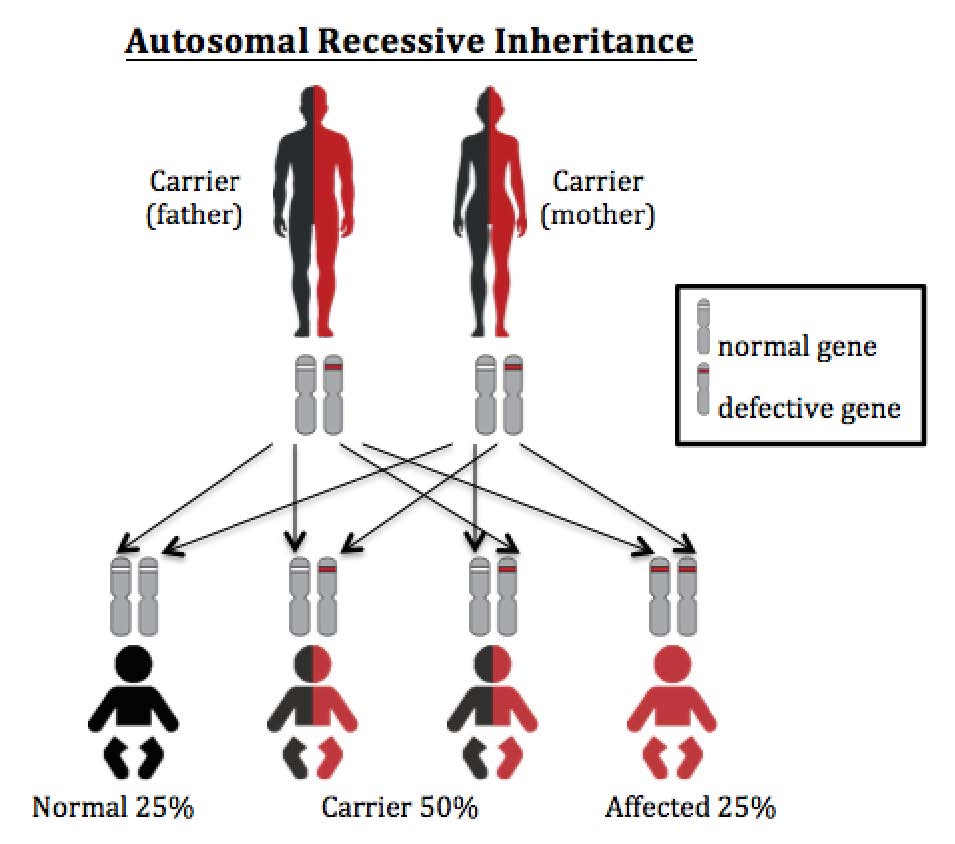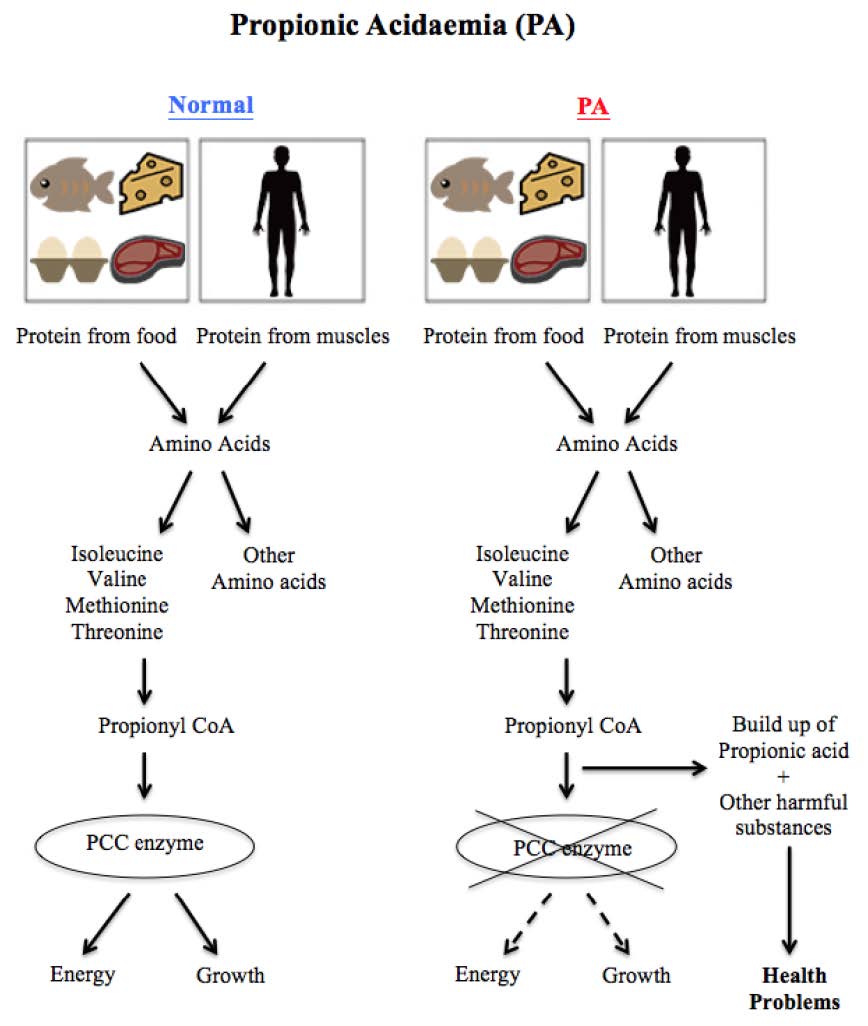
PA is a rare but treatable organic acid disorder. People with organic acid disorders cannot process amino acids, the building blocks of protein.
Our body breaks down protein in food into amino acids when we eat, and breaks down protein in our muscle into amino acids during prolonged fast and stress. Amino acids are then processed by special chemicals called enzymes so that the body can use them. Different enzymes target specifically at different amino acids.
Babies with PA lack specific enzymes or their cofactors which are essential to process four amino acids, namely isoleucine, valine, methionine, and threonine. These amino acids cannot be utilized and harmful substances build up in the body, causing health problems.

The original graphic is converted into the following text version for your easy access to the information.
Propionic acidaemia
Our body breaks down protein in food into amino acids when we eat, and breaks down protein in our muscle into amino acids during prolonged fasting and stress. The four amino acids including Isoleucine, Valine, Methionine and Threonine will then be metabolized to form Propionyl CoA. When functioning normally, our body will produce PCC enzymes to metabolise Propionyl CoA to produce energy for our body's use and growth. In people with PA, PCC enzyme is either missing or not working properly, making Propionyl CoA cannot be metabolized properly. As a result, Propionic acid and other harmful substances will build up in the body, causing serious health problems.
Everybody has two copies of genes, one from each parent, which tell the body how to make specific enzymes.
Propionic acidaemia is an autosomal recessive disease. Only when babies inherit two faulty copies of the gene for propionic acidaemia from parents, the enzyme made does not work properly or is not even made at all.

The original graphic is converted in to the following text version for your easy access to the information.
Autosomal recessive inheritance
In autosomal recessive diseases, people with two faulty copies of gene (one from father and one from mother) will develop symptoms. People with only one faulty copy of gene are be normal and they are called disease carriers. PA is inherited in autosomal recessive manner. If both parents are PA carriers, for each pregnancy (no matter it is a baby boy or girl), there is a 25% (1 in 4) chance that the child has 2 copies of normal gene (who is not affected), a 50% (1 in 2) chance that the child has one normal and one faulty gene who is a carrier like the parents, and a 25% (1 in 4) chance that the child has two copies of faulty gene who is at risk for PA.
Babies with PA are usually healthy at birth but they can develop metabolic crisis within the first few days of life due to the build-up of toxic substances in the body.
Metabolic crisis is a period of time when a metabolic disorder makes the baby seriously ill. Babies tend to develop metabolic crisis when they do not have food for long periods of time, or when they have infection, fever, or stomach upset. Left untreated, they deteriorate with seizure and coma which can be life threatening.
Symptoms vary from person to person. Some children have very mild or no symptom, and do not develop symptoms of metabolic crisis until they are older. Some develop health problems even if they have never had a metabolic crisis. They may have brain damage and intellectual disabilities, poor growth, frequent infections, pancreatitis, heart, kidney and liver dysfunction, and visual impairment.
Babies with PA benefit significantly from early treatment and can have healthy and active lives.
Patients with PA can be treated with special diet and supplements. It is important to feed regularly and not to go for long periods without eating. Medications may also be given.
Babies with PA need to see their specialist metabolic team regularly even when they do not have symptom. It is important to discuss and design a possible plan with your doctor and dietician beforehand, in order to provide extra sugary foods during illness or other times when baby is not feeding well to prevent metabolic crisis.
If you are worried that your baby is ill, it is important to follow medical advice. Bring your baby to your local accident and emergency department immediately. Take any information that you have been given about PA, including this pamphlet, to the hospital with you.
For general queries on Newborn Screening Programme for Inborn Errors of Metabolism, please call 5741 4280 (Department of Clinical Genetics, Hospital Authority)
July 2024
Hospital Authority